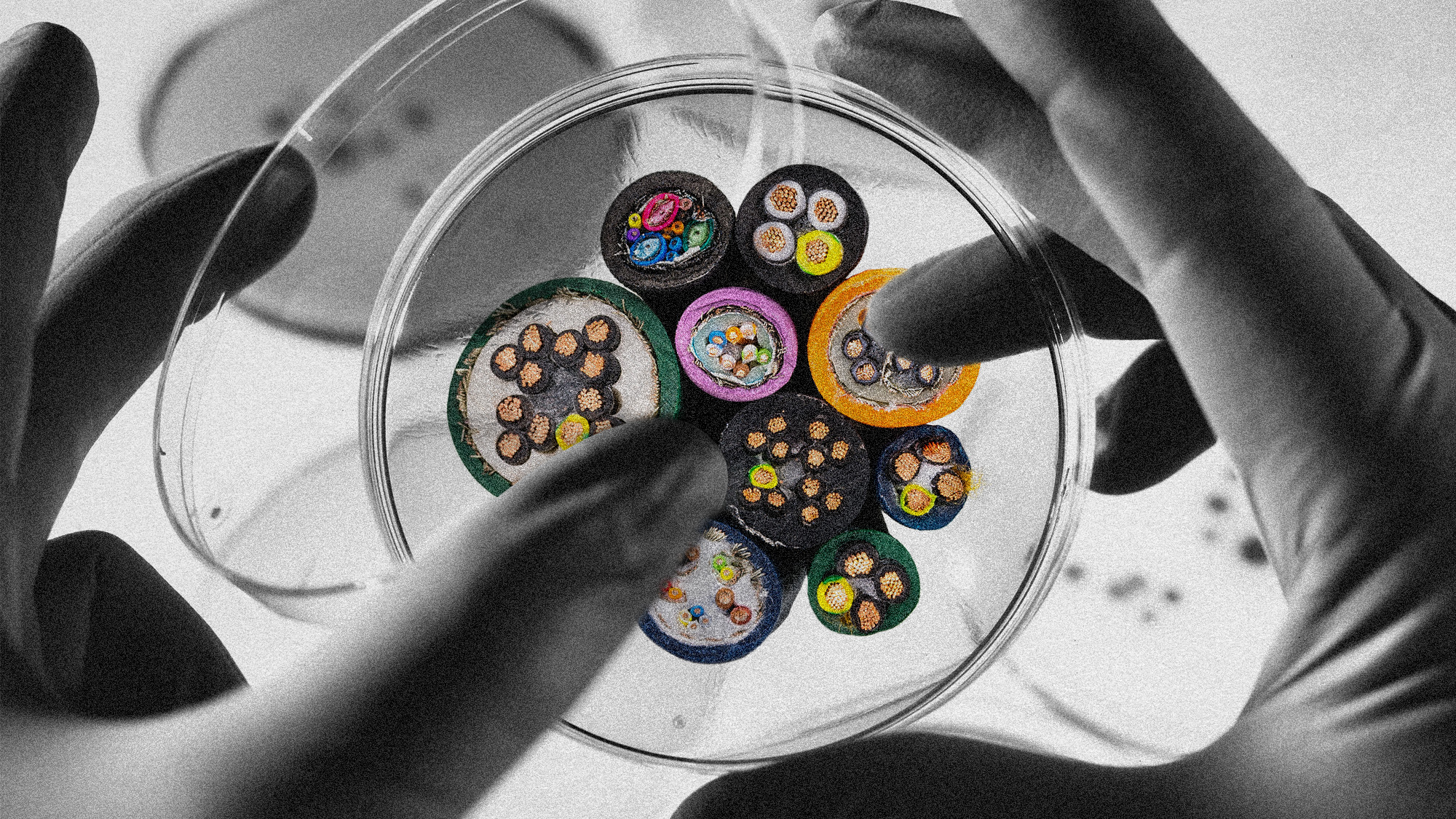'Bioelectric bacteria on steroids' could aid in pollutant cleanup and energy renewal
The new species is sparking hope for environmental efforts


A free daily email with the biggest news stories of the day – and the best features from TheWeek.com
You are now subscribed
Your newsletter sign-up was successful
Scientists have discovered a species of bacteria that can act as electric wiring, according to a new study. The bacteria, named Ca. Electrothrix yaqonensis, could usher in a "new era of bioelectronic devices for use in medicine, industry, food safety and environmental monitoring and cleanup," the researchers said in a press statement.
Distinctive features
Ca. Electrothrix yaqonensis, a cable bacteria "built from rod-shaped cells attached end to end," is not the only species able to conduct electricity, but it's considered "bioelectric bacteria on steroids," said Popular Mechanics. It "stands out from all other described cable bacteria species in terms of its metabolic potential," said Cheng Li, a researcher at Oregon State University and co-author of the study published in the journal Applied and Environmental Microbiology, in the press statement.
They have "distinctive structural features, including pronounced surface ridges up to three times wider than those seen in other species that house highly conductive fibers made of unique nickel-based molecules," said Li. This bacteria's electrical conductivity is an unusual trait and likely an "adaptation that optimizes their metabolic processes in the sediment environments in which they live."
The Week
Escape your echo chamber. Get the facts behind the news, plus analysis from multiple perspectives.

Sign up for The Week's Free Newsletters
From our morning news briefing to a weekly Good News Newsletter, get the best of The Week delivered directly to your inbox.
From our morning news briefing to a weekly Good News Newsletter, get the best of The Week delivered directly to your inbox.
The species transfers "electrons along its body" and shuttles "charges through sediments in its environment," said BGR. The species also contains genes and metabolic pathways that are a mix of two different bacterial genera. It "seems to be a bridge," which suggests it "could provide new insights into how these bacteria evolved and how they might function in different environments," said Li.
Spark of inspiration
These bacteria can "transfer electrons to clean up pollutants, so they could be used to remove harmful substances from sediments," said Li. This may be especially beneficial as remediation — reversing or stopping environmental damage — because remediation "can be one of the most time-consuming and costly aspects of infrastructure projects, particularly if a former brownfield site hopes to be reclaimed as a park or another public space," said Popular Mechanics. Using bacteria for such purposes is a sustainable form of remediation because the bacteria are "made of proteins and self-replicating cells," said BGR.
The applications go beyond pollution tidying. Its discovery "expands our understanding of the genetic and morphological diversity of cable bacteria," said the study. The bacteria's nickel proteins can also be a "model for developing new materials in clean energy or sensor technology," said BGR. "Combined with other advancements in generating electricity, like with the Earth's rotation or by capturing energy from falling rain, this discovery could help power a new generation of renewable energy."
A free daily email with the biggest news stories of the day – and the best features from TheWeek.com
Devika Rao has worked as a staff writer at The Week since 2022, covering science, the environment, climate and business. She previously worked as a policy associate for a nonprofit organization advocating for environmental action from a business perspective.
-
 Political cartoons for February 15
Political cartoons for February 15Cartoons Sunday's political cartoons include political ventriloquism, Europe in the middle, and more
-
 The broken water companies failing England and Wales
The broken water companies failing England and WalesExplainer With rising bills, deteriorating river health and a lack of investment, regulators face an uphill battle to stabilise the industry
-
 A thrilling foodie city in northern Japan
A thrilling foodie city in northern JapanThe Week Recommends The food scene here is ‘unspoilt’ and ‘fun’
-
 AI surgical tools might be injuring patients
AI surgical tools might be injuring patientsUnder the Radar More than 1,300 AI-assisted medical devices have FDA approval
-
 How roadkill is a surprising boon to scientific research
How roadkill is a surprising boon to scientific researchUnder the radar We can learn from animals without trapping and capturing them
-
 NASA’s lunar rocket is surrounded by safety concerns
NASA’s lunar rocket is surrounded by safety concernsThe Explainer The agency hopes to launch a new mission to the moon in the coming months
-
 The world’s oldest rock art paints a picture of human migration
The world’s oldest rock art paints a picture of human migrationUnder the Radar The art is believed to be over 67,000 years old
-
 Moon dust has earthly elements thanks to a magnetic bridge
Moon dust has earthly elements thanks to a magnetic bridgeUnder the radar The substances could help supply a lunar base
-
 The ocean is getting more acidic — and harming sharks’ teeth
The ocean is getting more acidic — and harming sharks’ teethUnder the Radar ‘There is a corrosion effect on sharks’ teeth,’ the study’s author said
-
 Cows can use tools, scientists report
Cows can use tools, scientists reportSpeed Read The discovery builds on Jane Goodall’s research from the 1960s
-
 The Iberian Peninsula is rotating clockwise
The Iberian Peninsula is rotating clockwiseUnder the radar We won’t feel it in our lifetime
